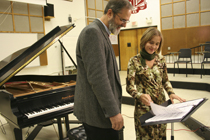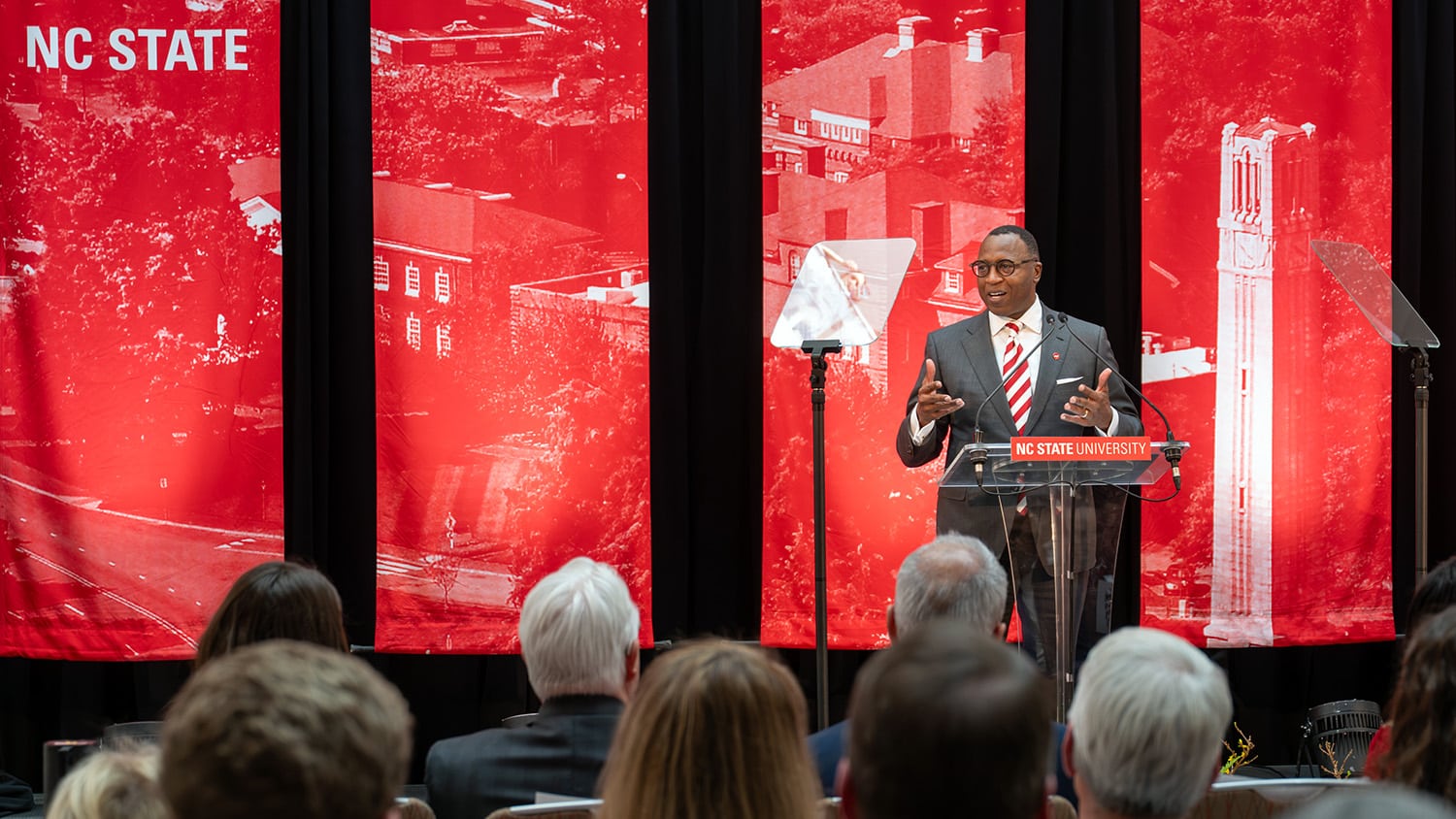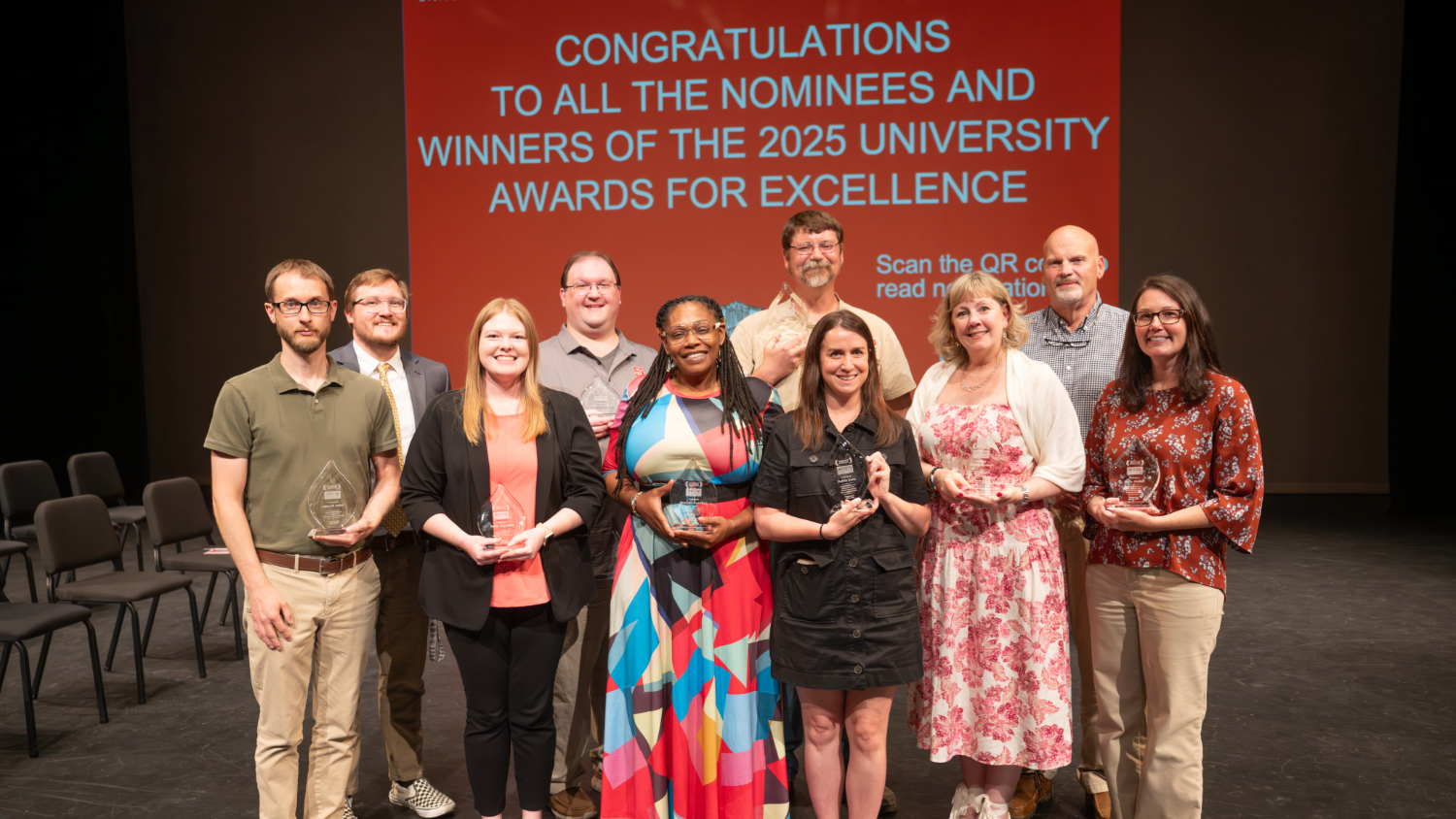On the World Stage
Dwarfed by an imposing grand piano in the Price Music Center, Dr. Olga Kleiankina smiles as she sits down at the very edge of the piano’s black padded bench. After a moment’s hesitation, she strikes the keys and the room is suddenly filled with the rolling resonance of the music.
The smile turns to a frown as she walks her hands up and down the keyboard, deftly – almost delicately – building the melody in a flowing, graceful cadence.

Across the room, her colleague, Dr. Rodney Waschka II, watches intently. As she concludes the movement, Kleiankina looks to the composer. “Too fast?” she asks. “No, but it should be drier,” Waschka responds.
The two are putting the finishing touches on Waschka’s new piano concerto less than a week before its world premiere at one of Europe’s most prestigious venues, the historic Glinka Hall in St. Petersburg, Russia. (Kleiankina performed the work on Nov. 27 as part of the Sound Ways Festival, an annual concert series that features new music by a Russian composer and the work of an invited guest Western composer. She was accompanied by the St. Petersburg Chamber Philharmonic under the direction of Jeffery Meyer.)
In the Footsteps of Liszt
The trip is a welcome opportunity for both musicians to showcase their talent on a world-class stage where giants like Franz Liszt, Anton Rubinstein and Sigismond Thalberg once performed.
Waschka is an expert in computer music renowned for his algorithmic compositions, although he often composes for traditional ensembles. His piano concerto was composed using genetic algorithms with musical influences by the classical composer Pyotr Tchaikovsky.
Kleiankina, a native of Moldova, recently joined NC State as head of the piano program. She likes the energy in Waschka’s work but says the concerto presents challenges to her as a pianist due to the physical demands of the piece.
“It’s much more based on rhythms, acoustic affects, running scales and quickly changing passages than a traditional piano concerto,” she says. “Other concertos, if we go back to Rachmaninoff and Tchaikovsky are much more based on melody, on alternations of various themes.”
Spirit of Collaboration
Waschka says collaborating with Kleiankina has helped him perfect the concerto.
“After Olga played it the first time, we began to talk about the things that worked, and the things that didn’t seem to work,” he says. “I would then go back and work on certain sections if they didn’t seem to work at all. We just reiterated that process over and over.”
During this practice session, with the premiere just days away, the musicians are savoring the moment.
“Obviously this is a really exciting project because I believe there will be incredible acoustics in the hall and the orchestra will be of a very high level,” Kleiankina says. “I expect this is going to be a great performance.”
Practice Makes Perfect
- Categories:


